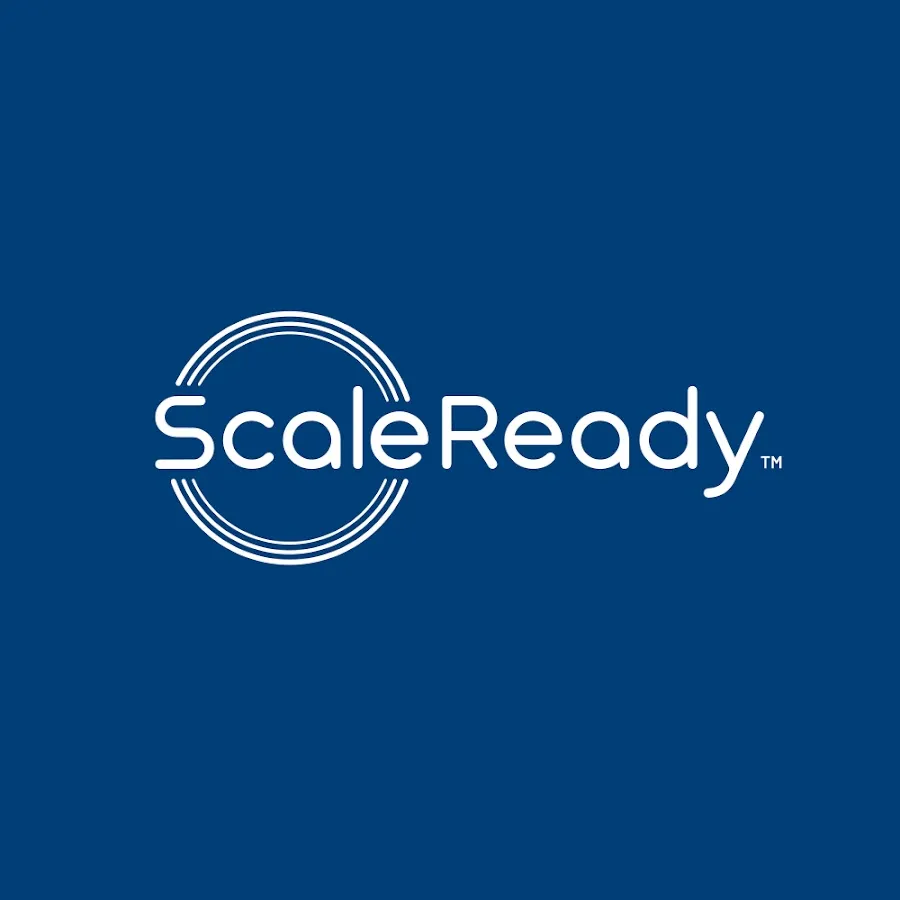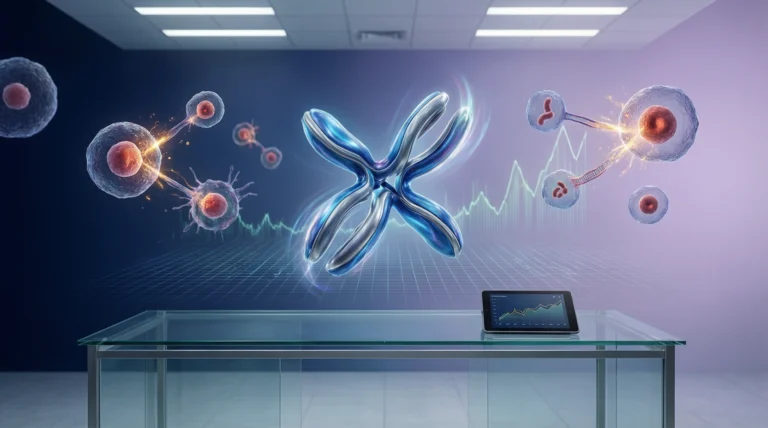
ScaleReady Awards G-Rex® Grants to Advance Cell and Gene Therapy Manufacturing Across California
ScaleReady, a joint venture formed by Wilson Wolf Manufacturing, Bio-Techne Corporation (NASDAQ: TECH), and CellReady, announced a major step forward in its commitment to advancing cell and gene therapy (CGT) manufacturing. The company revealed that it has awarded eight G-Rex® Grants, amounting to nearly $2 million in funding, to leading academic institutions in California that are part of the California Institute for Regenerative Medicine (CIRM) Manufacturing Network (INFR5) program.
This funding is part of ScaleReady’s broader mission to expand access to innovative technologies and workflows that make cell and gene therapy manufacturing more efficient, scalable, and cost-effective. With California already emerging as a global hub for regenerative medicine, this collaboration underscores the importance of public–private partnerships in accelerating the path from scientific discovery to patient-ready therapies.
California’s Growing Role in Cell and Gene Therapy
California has long been recognized as a center for innovation in life sciences, with a concentration of world-class universities, research institutions, biotech companies, and investors. The state’s California Institute for Regenerative Medicine (CIRM), launched in 2004 through voter-approved funding, has become a cornerstone in driving stem cell and regenerative medicine research. Over the years, CIRM has committed billions of dollars to support groundbreaking projects, clinical trials, and infrastructure that position California at the forefront of the CGT revolution.
The CIRM Manufacturing Network initiative, under its INFR5 program, is designed to strengthen Good Manufacturing Practice (GMP) facilities across the state. These facilities are essential for scaling promising cell and gene therapies from academic laboratories into clinical-grade products ready for patient use. The program provides financial support to nonprofit academic GMP centers, enabling them to enhance their capabilities, expand collaboration with industry, and foster innovation in manufacturing methods.
Dr. Shyam Patel, Associate Vice President of Preclinical Development at CIRM, emphasized the significance of the initiative:
CIRM’s California Manufacturing Network initiative recognizes the integral role that California academic manufacturing facilities play in advancing the development of innovative cell and gene therapies. We applaud the CIRM awardees for securing G-Rex grants to further advance the development of cost-effective cell therapy manufacturing platforms for patients.”
G-Rex® Technology: A Scalable Platform for Cell Therapy Production
At the heart of this initiative is the G-Rex® platform, an innovative manufacturing technology co-invented by John Wilson, CEO of Wilson Wolf. G-Rex is designed to simplify and scale up the expansion of cells in culture. Traditional methods of producing cell therapies often face challenges related to volume, consistency, cost, and scalability. G-Rex addresses these issues by enabling large-scale cell expansion in a more controlled, efficient, and reproducible manner.
According to Wilson:
“It’s gratifying to know that the G-Rex manufacturing platform is being widely adopted by California’s prestigious academic manufacturing facilities that are pursuing groundbreaking cell and gene therapy discoveries, clinical trials, and drug product approvals.”
By awarding grants tied to this platform, ScaleReady aims not only to accelerate specific projects but also to standardize and spread the adoption of scalable, GMP-compliant manufacturing approaches across multiple institutions.
The Eight G-Rex Grant Awardees
The nearly $2 million in G-Rex Grants has been distributed among eight recipients across California, each working on distinct but complementary areas of CGT development. Together, they represent a wide array of therapeutic targets, ranging from CAR-T cell therapies to novel non-viral manufacturing techniques.
1. University of California, San Diego (UCSD) – $125,000
Recipient: Dr. Dan Kaufman, Professor of Medicine and Director of the Cell Therapy Program
Dr. Kaufman’s team will use its grant to develop a novel G-Rex-based production system for virus-like particles (VLPs), which play a critical role in in vivo immune cell engineering. By leveraging VLPs, researchers can introduce genetic material into cells more safely and efficiently, potentially opening new avenues for engineering immune cells directly inside the body.
2. City of Hope – $300,000
Recipient: Dr. Taby Ahsan, Vice President of Cell & Gene Therapy
Collaborating Investigator: Dr. Xiuli Wang, Professor in Hematology & Hematopoietic Cell Transplantation
City of Hope, one of the nation’s leaders in cancer research and treatment, received two interconnected grants. Dr. Ahsan’s award will support the ongoing development of G-Rex-based CAR-T manufacturing methods. Meanwhile, Dr. Wang’s lab will be the first at City of Hope to bring a clinically available CAR-T therapy produced with the G-Rex system into patient trials, marking a pivotal moment in clinical translation.
3. Stanford Medicine – $300,000
Recipient: Dr. Steve Feldman, Site Head and Scientific Director of the Laboratory for Cell & Gene Medicine (LCGM)

At Stanford, Dr. Feldman’s group is applying the G-Rex system to manufacture CAR-T therapies, with early results already advancing to the clinic. The first therapy, targeting GPC2+ pediatric neuroblastoma and medulloblastoma, recently entered clinical trials. This represents a significant milestone, as it demonstrates how G-Rex-enabled production is not merely theoretical but actively advancing to patient treatment.
4. University of Southern California (USC) / Children’s Hospital Los Angeles (CHLA) – $300,000
Recipient: Dr. Mohamed Abou-el-Enein, Executive Director of the Cell Therapy Program
Dr. Abou-el-Enein’s team is pioneering non-viral CAR-T manufacturing methods, aiming to create safer, faster, and less expensive processes. Non-viral approaches avoid the complexities and costs associated with viral vectors, which are traditionally used to insert genetic material into T cells. This grant will provide a boost to these cutting-edge efforts at USC/CHLA’s GMP facility.
5. University of California, Davis (UCD) – $300,000
Recipient: Mr. Brian Fury, Director of the GMP Facility
At UCD, the grant will be used to refine and optimize a G-Rex-centric CAR-T manufacturing platform. This facility supports not only internal academic investigators but also external industry partners, making it a regional hub for translational CGT research and development.
6. University of California, San Francisco (UCSF) – $200,000
Recipients: Dr. Brian Shy, Director of the Human Islet and Cellular Transplantation GMP Facility (HICTF), and Dr. Ke Li, Head of Process Development
The UCSF team will enhance its open-source, fully non-viral CAR-T platform, which has already reached significant milestones. Recently, the FDA cleared an Investigational New Drug (IND) application for UCSF’s first non-viral anti-BCMA CAR-T therapy. Work is now underway on a second candidate targeting CD70, led by Dr. Arun Wiita, another grant recipient.
7. University of California, Los Angeles (UCLA) – $150,000
Recipient: Dr. Dawn Ward, Medical Director of the Human Gene & Cell Therapy Facility
Dr. Ward’s team is setting up multiple G-Rex-based workflows for different cell therapy modalities at UCLA’s new GMP facility. The first therapy to emerge will be an invariant natural killer T (iNKT) cell therapy, spearheaded by Dr. Lili Yang, also a grant recipient. iNKT therapies represent a novel frontier in immunotherapy, offering potential applications across cancer and autoimmune diseases.
8. Cedars-Sinai – $300,000
Recipient: Dr. Dhruv Sareen, Executive Director of the Biomanufacturing Center (CBC)
Collaborating Investigator: Dr. Joshua Sasine
Cedars-Sinai will apply its grant to preclinical and IND-enabling studies for a CAR-T therapy targeting pancreatic adenocarcinoma, one of the most difficult-to-treat cancers. This project, developed by Dr. Sasine’s lab, marks the first CAR-T therapy to be developed and manufactured at Cedars-Sinai.
ScaleReady’s $40 Million G-Rex Grant Program
The California awards represent just one piece of a much larger initiative. ScaleReady’s G-Rex Grant Program is a $40 million global effort, designed to support cell and gene-modified therapy development by awarding individual grants of up to $300,000. Beyond financial support, awardees gain access to ScaleReady’s growing consortium of partners, who offer expertise in GMP manufacturing, regulatory strategy, quality systems, and business operations.
This holistic support is intended to ensure that promising therapies can progress more smoothly through the development pipeline, overcoming one of the greatest bottlenecks in the CGT field: the transition from early-stage discovery to large-scale clinical and commercial manufacturing.
LEAN Cell & Gene™: A New Educational Initiative
In addition to direct financial support, ScaleReady has introduced a free program aimed at transforming the efficiency of CGT operations worldwide. Partnering with Hanson Wade, ScaleReady has launched the LEAN Cell & Gene™ event series, open to all stakeholders in the CGT ecosystem.
These events focus on teaching participants how to apply LEAN principles—a management approach rooted in eliminating waste and maximizing value—to the unique challenges of cell and gene therapy manufacturing. Topics include:
- Systematic waste identification and reduction
- Stabilization of business and manufacturing processes
- Improving drug product quality and reliability of supply
- Developing scalable, sustainable CGT operations
By sharing these insights freely, ScaleReady seeks to democratize knowledge and accelerate the development of efficient, reproducible, and accessible cell and gene therapy manufacturing worldwide.
The awarding of G-Rex Grants to eight leading California institutions marks a significant milestone not only for the recipients but for the broader field of regenerative medicine. By investing nearly $2 million into innovative academic programs, ScaleReady and its partners are strengthening the infrastructure necessary to transform cell and gene therapies from promising laboratory discoveries into accessible patient treatments.
With the continued expansion of the $40 million G-Rex Grant Program and the launch of the LEAN Cell & Gene™ initiative, ScaleReady is positioning itself as both a technology provider and a thought leader in the evolving CGT landscape. Together with CIRM and California’s network of pioneering institutions, these efforts are expected to accelerate progress toward the shared goal of bringing life-changing therapies to patients in need.




